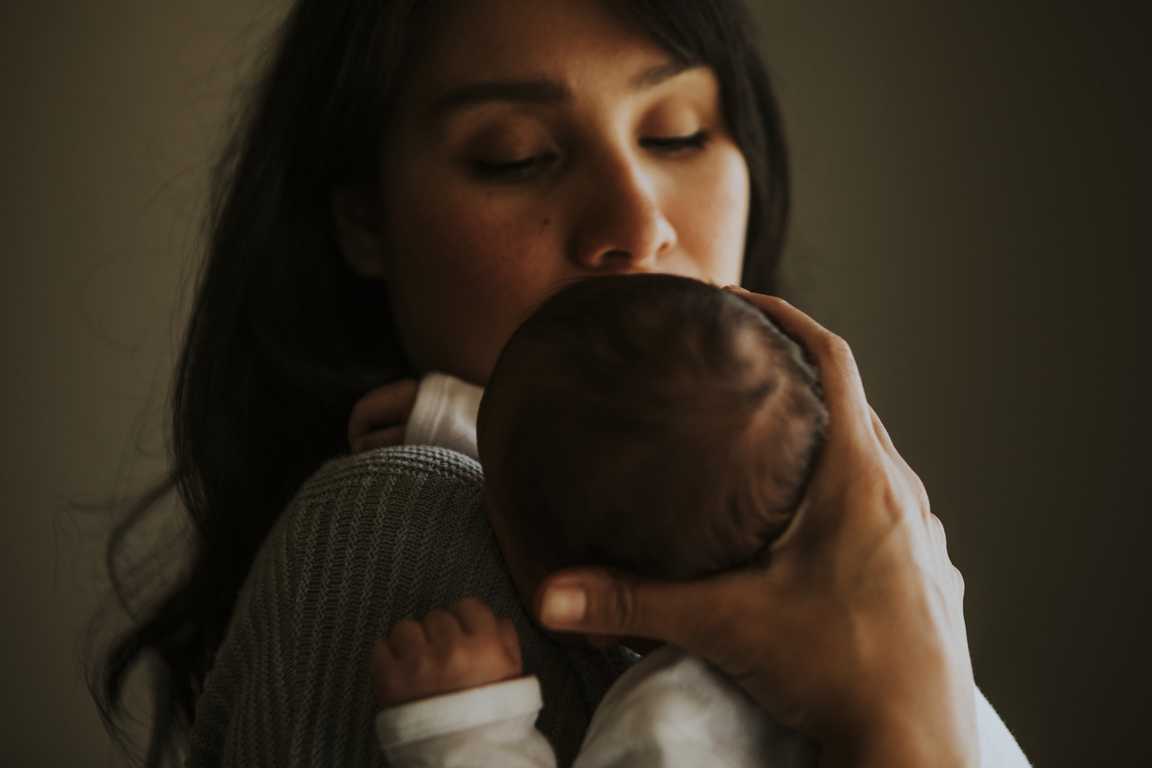Is your throat feeling sore? Do you have a runny nose? Feeling a little weak and fatigued? Are your muscles and head aching? You might be feeling the usual symptoms of common infections. As a breastfeeding mom, it’s easy to worry about these viruses and infections because they might also contaminate your baby! Fret not mommyz, here’s the good news! According to experts, common illnesses like colds, coughs, flu, and stomach bugs shouldn’t stop a sick mom to breastfeed. In fact, there may also be benefits to nursing your child even while you are sick!
Story Time
I had Isaac, my second baby, just a few months after my first born started daycare. It was also the start of the winter so of course, Samuel would bring all the bugs home, and we would all get infected. However, Isaac didn’t get sick even though he was just a few weeks old. It seemed like he was immune to them. And, indeed he was! My breastmilk would make antibodies to help protect him from the bugs that my body was already fighting. How incredible is breastmilk!
In A Nutshell…
- Breastfeeding moms that are sick due to the usual viral infections (like coughs, colds, stomach bugs, and flu) should still continue breastfeeding.
- Common infections are generally NOT passed to your breast milk, so your baby doesn’t really contract the infection from you.
- Breast milk is good for the baby as it contains several antibodies and protective components that strengthen their immune system.
- Most over-the-counter drugs are safe for breastfeeding moms. But before taking any medications or treatments to cure your sickness, consult your doctors and health professionals.
- Prevent common illnesses from happening at your home by keeping it clean. You should also build your immune system through healthy habits and getting your regular flu shots.
Frequently Asked Questions: Breastfeeding While You Are Sick

Common illnesses such as the flu, stomach bugs, coughs, and colds are very common. Viral infections can still be contracted by breastfeeding moms. When you’re feeling under the weather, your first instinct might be to stop nursing to avoid passing the infection down to your baby.
However, breastfeeding actually helps and protects your baby from getting sick even when you already feeling unwell. Wonder how? Here are the answer to the frequently asked questions:
Is It Okay For A Sick Mom To Breastfeed?
In most cases — yes, you should! Breast milk actually contains several antibodies and immunological properties that shield your baby from these run-of-the-mill infections. Breast milk is still the recommended nutritional source for infants, particularly whenever the mother is feeling ill.
In instances where the mother is too unwell to nurse, babies are still encouraged to receive breast milk. Moms should instead do regular milk expressions and have someone assist them with feeding. This helps keep your breast milk supply adequate and abundant.
When pumping out your milk supply, it’s important to prioritize sanitation. Wash your hands thoroughly with antibacterial soap and water and keep your breast milk pumps and equipment clean. If need be, ask the support of a lactation consultant to avoid breast infections or a decrease in your breast milk supply.
Can Breast Milk Carry Common Illnesses?
Nope. These typical infections aren’t transmitted through your breast milk. Primarily, it’s spread through person-to-person contact, especially when the respiratory droplets from coughing, sneezing, or speaking are distributed in the air.
Maternal infections, including respiratory and gastrointestinal ones, may only pose a risk to infants when septicemia (or blood poisoning) occurs to the mother and bacteria has reached the milk.
What’s interesting is that your breast milk even has the amazing capability to change its composition! Whenever you are exposed to viral or bacterial infections, your body synthesizes more antibodies which can be passed down to your breast milk, protecting both you and your baby from getting sick.
Will Your Baby Get Sick From Your Breast Milk?
No, the common viral infections don’t get passed down to your baby through your breast milk. Really, the best thing you can do for your baby whenever you are sick is to continue breastfeeding. Halting breastfeeding while you are sick will only increase the chances of your baby contracting the illness as well.
Interestingly, most people do not know that they are already contagious even before the symptoms of these infections show up. So while you think you may only be feeling sick right now, you were most likely to already spreading out the infection in your household before you started feeling under the weather.
Is It Safe To Have A Flu Vaccine Shot for Breastfeeding Mothers and Infants?
Yes, flu vaccines are recommended for breastfeeding mothers and infants 6 months and above. It’s even much better if you get vaccinated while you are pregnant or breastfeeding so that you can share the antibodies you develop through your breast milk.
Infants 6 months and younger aren’t ready to receive flu shots yet. That’s why it’s best to have everyone in the household receive their annual flu vaccinations to prevent your younger ones from getting sick.
When Should You Stop Breastfeeding To Seek Medical Help?
More serious illnesses and treatments for diseases like cancer, STDs, HIV, tuberculosis, measles, and septicemia may require you to temporarily stop breastfeeding. These are the conditions that may be passed on to your child if you continue breastfeeding. Seek medical advice when faced with these kinds of sickness to know whether or not it is safe to continue breastfeeding.
Medicine Considerations While Breastfeeding

If you’re breastfeeding and thinking of taking any prescription medicines, be sure to get a consultation with your doctor and your baby’s pediatrician. Although many medications are safe for pregnant and breastfeeding moms, some drugs may have an effect on your baby. Consider the following when taking medications:
- Medications can likely affect premies and newborn.
- The weight of your baby also plays a factor. Heavier ones will most likely not get affected, compared to those that are lighter.
- Babies that are already complementary fed with solid foods will also have smaller chances of being affected by strong medications.
- Long-term medication use will have a greater impact on your breast milk composition.
- The time you took the medication (before, in-between, or after breastfeeding) can also influence your breast milk.
Here are some of the usual over-the-counter (OTC) drugs that are considered safe for breastfeeding moms. Again, ask the advice of your doctors before purchasing any medications.
- Analgesics like Aleve, Anacin-3 Regular Strength, Tempra, Tylenol, Motrin, and Advil are considered safe. The recommended type of analgesic for breastfeeding moms is Ibuprofen. The mother’s milk can only carry very small amounts of medicine.
- Antacids like act-Aid, Lactobacillus acidophilus, Tums (also a good source of calcium), and Tums E-X or Ultra, Mylanta or Mylanta extra-strength, Mylicon, Maalox, DiGel, Gaviscon, Alka-Seltzer, Phazyme, Rolaids, and Tagamet.
- Sore throat remedies like Celestial Seasonings, Cepacol Lozenges, NICE Lozenges, and Vicks Lozenges. Choose these instead as they menthol/and/or benzocaine rather than phenol.
- Sinus decongestants like Pseudoephedrine. However, use with caution because pseudoephedrine can decrease milk supply
- Most non-sedating antihistamines like Claritin, Actifed, Zyrtec, and Allegra. (avoid those with sedative effects as this may cause your babies to be drowsy).
Preventive Tips To Keep The Infection Away

Like with any kind of sickness, prevention is key to keep you, your baby, and your family healthy. Protect yourself and your baby from being ill with these tips:
- Keep the germs away. Skip being a victim of the flu season by keeping your environment and surroundings clean. Always wash your hands and properly clean your breastfeeding equipment.
- Strengthen your immunity. Being a busy mom can take a toll in your body. Eat healthily, amp your vitamin C intake, and sleep well! Having unhealthy habits can deteriorate your immune health.
- Get your flu shots. Make sure you and your family members get the annual flu shots to lessen your risks of being sick. The flu vaccine only protects babies after they’ve reached 6 months.
- Breastfeed exclusively. Studies have shown that babies that drink breast milk exclusively for 6 months are less likely to contract colds, ear, or throat infections than those that are formula-fed.
The Takeaway….
Common infections like the flu, cough, and colds are all too common. Breastfeeding moms are often worried that these sicknesses would be passed down on their nursing babies. However, experts actually recommend that moms continue breastfeeding even while they are sick.
The run-of-the-mill infections usually don’t get transmitted to the breast milk, which is why babies generally don’t get sick from their mom. In addition, breast milk contains antibodies and immunity-boosting elements that can protect your baby from getting sick.
Keep your family’s health in check by keeping a clean environment, a strong immune system, and taking regular flu shots. Always seek the advice of a health professional when it comes to any treatment and medications while breastfeeding






